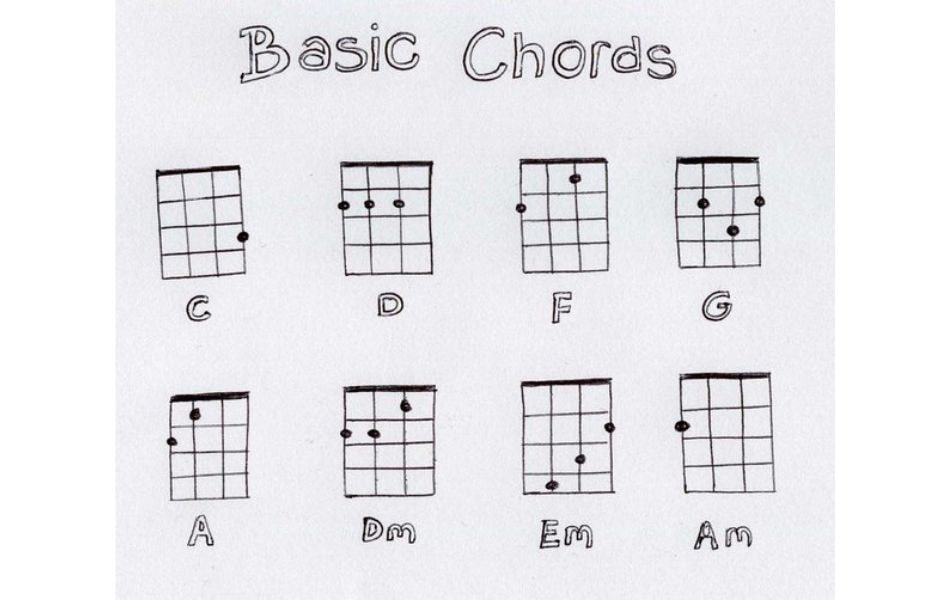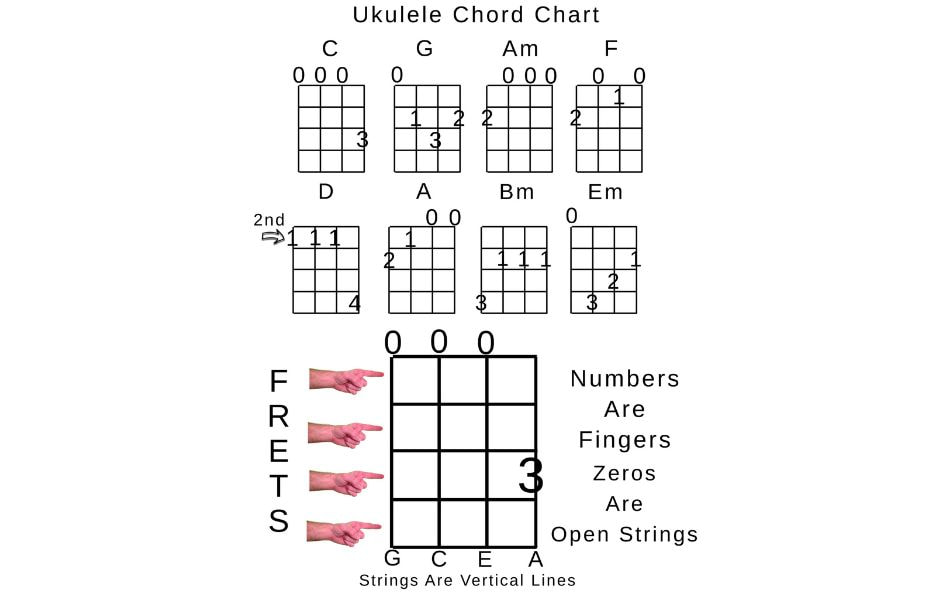Revealing 10 Secrets To Memorize Ukulele Chords
Track Info

Song:
Artist:
Writers:
Producers:
Album: Updating
Chords Info
Tuning
CapoNo Capo
Chords Used
Embarking on the journey of learning to play the ukulele is an exciting endeavor, but mastering chord memorization can sometimes feel like navigating through a maze. Fear not! With the right guidance, you can unravel the complexities of ukulele chords and confidently strum through your favorite tunes. In this guide, we'll unveil ten invaluable secrets to help you conquer chord memorization and unlock the full potential of your ukulele playing. Let's dive in and discover the keys to musical proficiency.
What is ukulele chord? Is it difficult?
A ukulele chord is a combination of notes played simultaneously on the ukulele, formed by pressing down on the strings at specific frets with your fingers. Different combinations create different chords, each with its own sound and character.
Whether learning ukulele chords is difficult depends on various factors such as your previous musical experience, dexterity, and how much time you dedicate to practice. Some chords are easier to play than others, especially for beginners, but with patience and practice, most people can learn to play a variety of chords on the ukulele.
Starting with simple chords like C, G, and F can be a good way to ease into learning. As you become more comfortable with those, you can gradually tackle more complex chords and chord progressions.
Secrets To Memorize Ukulele Chords
Memorizing ukulele chords can seem daunting at first, but with the right approach and practice techniques, it becomes much more manageable. Here are some secrets to help you memorize ukulele chords effectively:
Start with Basic Chords
Begin by learning a few basic chords such as C, G, F, Am, and Dm. These chords are commonly used in many songs and provide a solid foundation for further learning.

Practice Regularly
Consistent practice is key to memorizing chords. Set aside time each day to practice chord transitions and play songs that incorporate the chords you're learning.
Use Mnemonics
Create mnemonic devices or associations to help you remember chord shapes and names. For example, you might associate the C chord shape with the letter "C" or think of a word that starts with the same letter as the chord name.
Visualize Chord Shapes
Visualize the shape of each chord in your mind's eye and practice forming the chord without looking at your fingers. This helps reinforce muscle memory and improves your ability to transition between chords quickly.
Learn Chord Families
Group chords that share similar shapes or fingerings into families. For example, the C major, A minor, F major, and G major chords are all part of the C chord family and share similarities in finger placement.
Practice Chord Progressions
Work on common chord progressions found in songs you enjoy. Practice transitioning smoothly between chords within these progressions until they become second nature.
Use Chord Charts and Diagrams
Utilize chord charts and diagrams as visual aids to help you learn and memorize chord shapes. These resources show you where to place your fingers on the fretboard for each chord.

Play Along with Songs
Play along with your favorite songs using chord charts or tabs. This not only helps you memorize chords but also improves your sense of rhythm and musicality.
Break Down Chords
Break down complex chords into smaller components and practice each part separately before putting them together. This approach can make learning challenging chords more manageable.
Be Patient and Persistent: Learning to play the ukulele takes time and patience, so don't get discouraged if progress feels slow. Celebrate small victories along the way and keep pushing yourself to improve.
With these ten secrets in your arsenal, mastering ukulele chord memorization is within reach. Practice diligently, stay patient, and embrace the joy of making music. Let your ukulele be your guide as you strum your way to musical proficiency.








